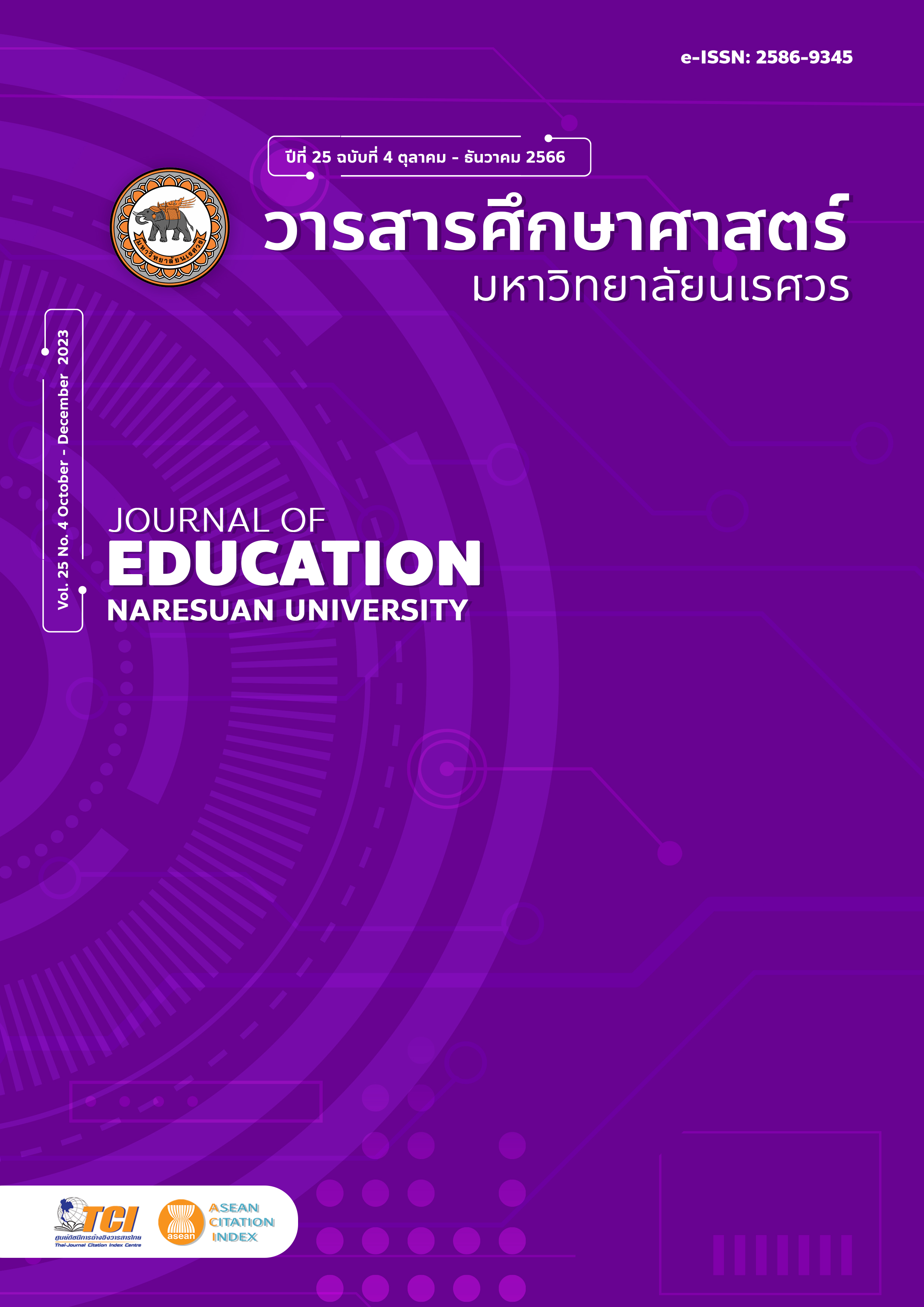RISK MANAGEMENT MODEL OF THE DISCIPLINARY PROCEDURES FOR GOVERNMENT TEACHERS AND EDUCATIONAL PERSONNEL UNDER THE EDUCATIONAL SERVICE AREA OFFICE
Main Article Content
Abstract
The objectives of this research were: 1) to study problems, risk factors, and contributing factors in disciplinary procedures for government teachers and educational personnel under the educational service area office; the target group for the data survey included 225 directors of legal and litigation group selected from 225 educational service area offices by purposive sampling and research instrument was questionnaires, 2) to create and validate risk management model of the disciplinary procedures for government teachers and educational personnel under the educational service area office; the target group included 7 qualified persons who had expertise and experience in the disciplinary procedures obtained by purposive sampling and research instrument was a draft model with focus group discussion issues, and 3) to assess risk management model of the disciplinary procedures for government teachers and educational personnel under the educational service area office; the target group for the data survey included 245 directors of legal and litigation group selected from 245 educational service area offices and 18 chairmen of the executive committee of the inspectorate areas from 18 inspectorate areas obtained by purposive sampling and research instrument was the assessment form. The findings showed that 1) The disciplinary procedures of government teachers and educational personnel under the educational service area office had 3 aspects of problems and risk factors as 1.1) process, 1.2) personnel, and 1.3) legal and regulations. The most problem was Legal and Regulations. The most risk factor was Personnel. The overall of the problems was at a moderate level, while the overall of the risk factors was at a high level; 2) the System Theory was the concept for drafting a risk management model consisting of 5 components as 2.1) input, 2.2) process, 2.3) output, 2.4) feedback, and 2.5) environment. The model validation was found to be accurate and appropriate, and 3) the model assessment’s results showed that the feasibility and usefulness of the application as a whole were at a high level.
Article Details

This work is licensed under a Creative Commons Attribution-NonCommercial-NoDerivatives 4.0 International License.
The owner of the article does not copy or violate any of its copyright. If any copyright infringement occurs or prosecution, in any case, the Editorial Board is not involved in all the rights to the owner of the article to be performed.
References
Churasri, J. (2013). Legal problems related to disciplinary action of officers under The National Police Act B.E. 2547 (Master thesis). Bangkok: Dhurakij Pundit University.
Kaewchinda, S. (2011). The problems of impartiality in administrative considerations: Acase of disciplinary action for government teachers and educational personnel (Independent Study). Nonthaburi:
Sukhothai Thammathirat Open University.
Khamsingsri, S. (2014). Problems in civil servants disciplinary actions (Master thesis). Bangkok: Kasem Bundit University.
Laengsatan, S. (2017). Legal problems on the appeal against the disciplinary penalty in the case of the national anti-corruption commission found group for disciplinary offences. Payap University Journal, 27(1), 195-213.
Munrat, T. (2018). Disciplinary action of government teachers and educational personnel. The Journal of Law, Public Administration and Social Science, School of Law Chiang Rai Rajabhat University, 2(2), 97-134.
Munrat, T. (2020). Severe misconduct by teachers and educational personnel. The Journal of Law, Public Administration and Social Science, School of Law Chiang Rai Rajabhat University, 4(1), 143-158.
Namta, K., & Suthumdee, C. (2019). Disciplinary actions of civil servants in higher education institutions and employees in higher educational institutions. Journal of Social Science, Law and Politics, 3(1), 96-117.
Office of the Administrative Court. (2006). Summary of Official Practice from the Ruling of the Supreme Administrative Court. Bangkok: Teachers Council of Thailand Ladprao Printing House.
Office of the Administrative Court. (2006). Summary of Government Service Guidelines from the Ruling of the Supreme Administrative Court, 2006. Bangkok: Office of the Administrative Court.
Office of the Administrative Court. (2009). Legal Principles from the Ruling of the Supreme Administrative Court to Support the Good Practice of Government Officials in Conducting Disciplinary Procedures. Bangkok: Idea Square LP.
Office of the Administrative Court. (2009). Summary of the Law from the Supreme Administrative Court's Ruling to Strengthen Good Government Practices 2007. Bangkok: Chulalongkorn University Printing House.
Office of the Administrative Court. (2010). Summary of the Law from the Supreme Administrative Court's Ruling to Enhance Good Government Practices, 2008. Bangkok: The National Buddhism Office Printing House.
Office of the Administrative Court. (2011). Summary of the ruling of the supreme administrative court, B.E. 2552 (2009) to strengthen good government practices. Bangkok: Sahamit Printing and Publishing Company.
Office of the Administrative Court. (2014). Guidelines for government service from the ruling of the supreme administrative court for the year of B.E. 2556 (2013). Bangkok: Din Design Company.
Office of the Administrative Court. (2015). Guidelines for government service from the ruling of the supreme administrative court for the year B.E.2557 (2014). Bangkok: Din Design Company.
Office of the Administrative Court. (2016). Guidelines for government service from the decision of the supreme administrative court for the year B.E. 2559 (2015). Bangkok: ONPA Company.
Office of the Administrative Court. (2017). Guidelines for government service from the ruling of the supreme administrative court for the year B.E. 2559 (2016). Bangkok: Sahamit Printing and Publishing Company.
Office of the Basic Education Commission. (2009). Disciplinary procedures guide for educational service area office, educational institutions. Bangkok: Agricultural Cooperative Association of Thailand Printing House.
Office of the Teacher Civil Service and Educational Personnel Commission. (2006). Collection of disciplinary offenses, appeals, complaints, and legal discussions examples. Bangkok: Teachers Council Ladprao Printing House.
Office of the Teacher Civil Service and Educational Personnel Commission. (2010). The discipline of disciplinary actions for government teachers and educational personnel. Bangkok: Thammasat University Printing House.
Thongphosri, P. (2018). Problems of non-serious disciplinary procedures for government teachers and educational personnel (Master thesis). Nonthaburi: Sukhothai Thammathirat Open University.
Wongkam, T. (2013). Legal problems of control and review on disciplinary actions of teacher civil service and educational personnel (Master thesis). Bangkok: Dhurakij Pundit University.


